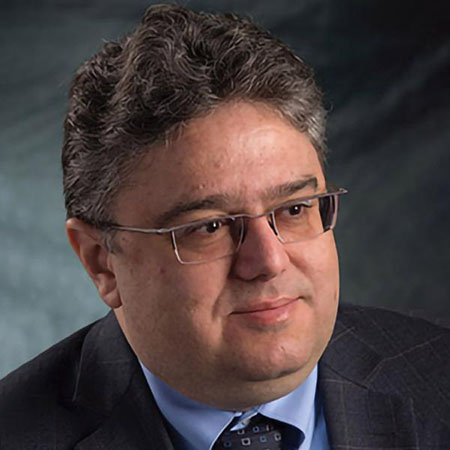Faculty Spotlights >> Ernesto T. Marques: Researcher and Collaborator
From the Lab to Global Solutions

Public Health
Researchers are explorers, detectives and analysts. By nature, they are both curious and patient. They are also eager to connect the dots between problems and possible solutions.
Ernesto T. Marques, associate professor, School of Public Health, is all of those things. And more.
A renowned translational scientist, Marques has spent his career identifying immune responses and disease pathogenesis, investigating social determinants, and then developing vaccines and other diagnostic tools that are used to treat global health threats such as SARS and COVID-19, HIV, dengue fever and cancer.
Case in point: his work with the Zika virus.
The Zika outbreak became personal to Marques when the virus appeared in his hometown of Recife, Brazil, in 2015.
Marques, who had spent decades studying the four iterations of the dengue virus, noted similarities between dengue and Zika—mild fever, rash and flu-like symptoms. But it wasn’t until some patients presented with Guillain-Barré syndrome and an unusually high number of infected women gave birth to babies with microcephaly that Marques began questioning exactly how the two viruses were related—and what could be done to curb their spread.
He initiated a collaboration with colleagues at the Fundação Oswaldo Cruz (FIOCRUZ) Institute, one of South America’s most prestigious medical research institutions, in 2003 and has been working closely with them ever since.
“I am a Brazilian. I know the people. I have connections and a different perspective than other researchers,” explains Marques. “It only made sense for me to live and work close to where the virus was spreading.”
What Should We Know About Vaccine Research?
“The creation of vaccines is complicated,” says Marques. “One vaccine may not be effective against all variants of a virus or a disease. The virus may change, due to changing environments or human conditions. We must continually explore more ways to make it more effective and safer for the largest number of people.”
The research process can be exceedingly slow, often taking decades. But Marques says even the simplest and most basic molecular research can lead to solutions and applications for known diseases, such as allergies, cancer, Zika and dengue—or perhaps an emerging disease that is not yet on the public health radar.
“In order to develop treatment for any disease, you must be part of a global community of researchers.
Our work informs each other.”
Splitting his time between his lab at the University of Pittsburgh and a duplicate lab in Brazil, Marques began to decode the mysteries of Zika. He worked with neurologists, virologists, epidemiologists, pharmacologists and immunologists.
Just months after the World Health Organization declared Zika a public health emergency, Marques and his multidisciplinary team published the results of their study in The Lancet, one of the oldest and most prestigious peer-reviewed medical journals. The article was the first scientific proof of the link between the Zika virus and microcephaly.
Marques went on to study the relationship between dengue and Zika and learned that the presence of dengue-Zika cross-reactive antibodies could markedly enhance the infection from Zika or dengue and contribute to its spread.
According to Marques, this research was a critical step in preparing for future outbreaks and predicting vaccine safety.
“In order to develop treatment for any disease, you must be part of a global community of researchers,” he continues. “Our work informs each other.”
